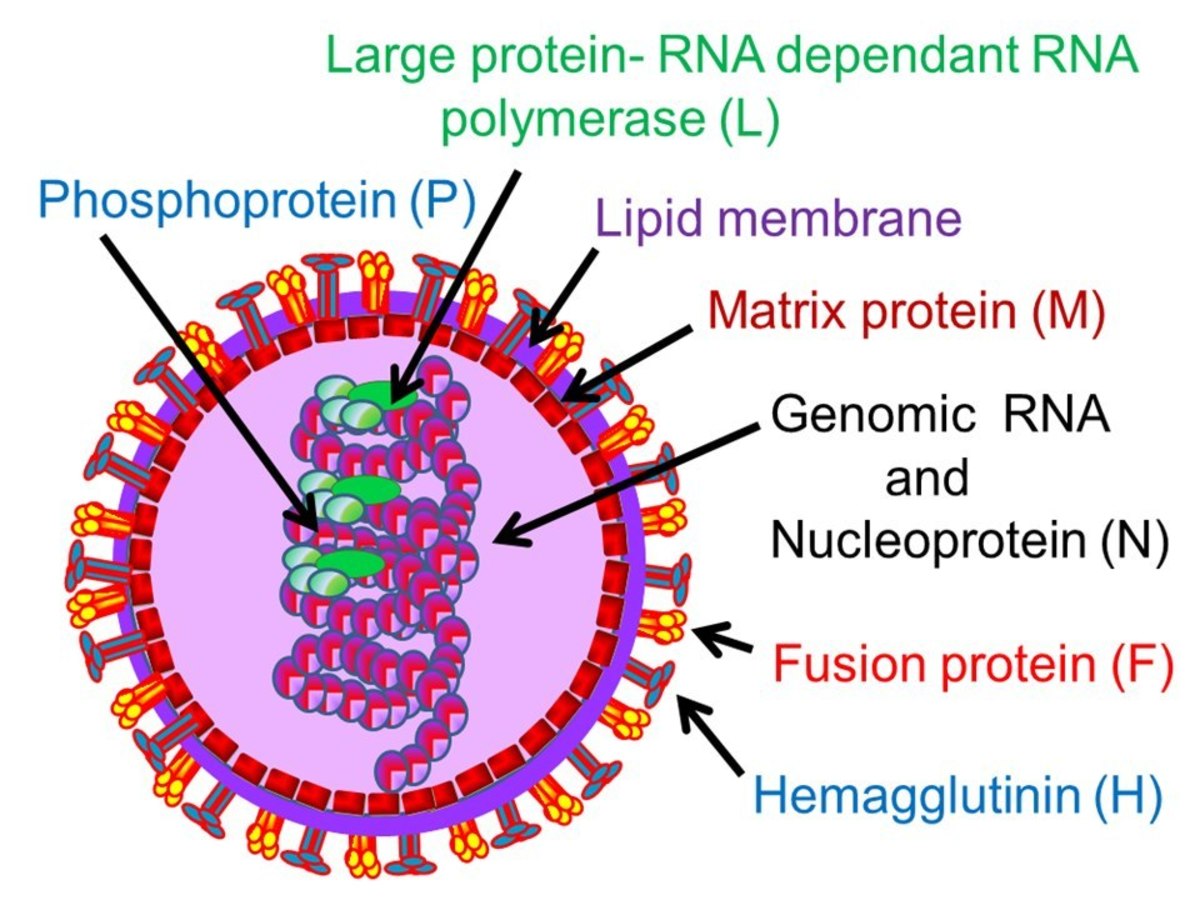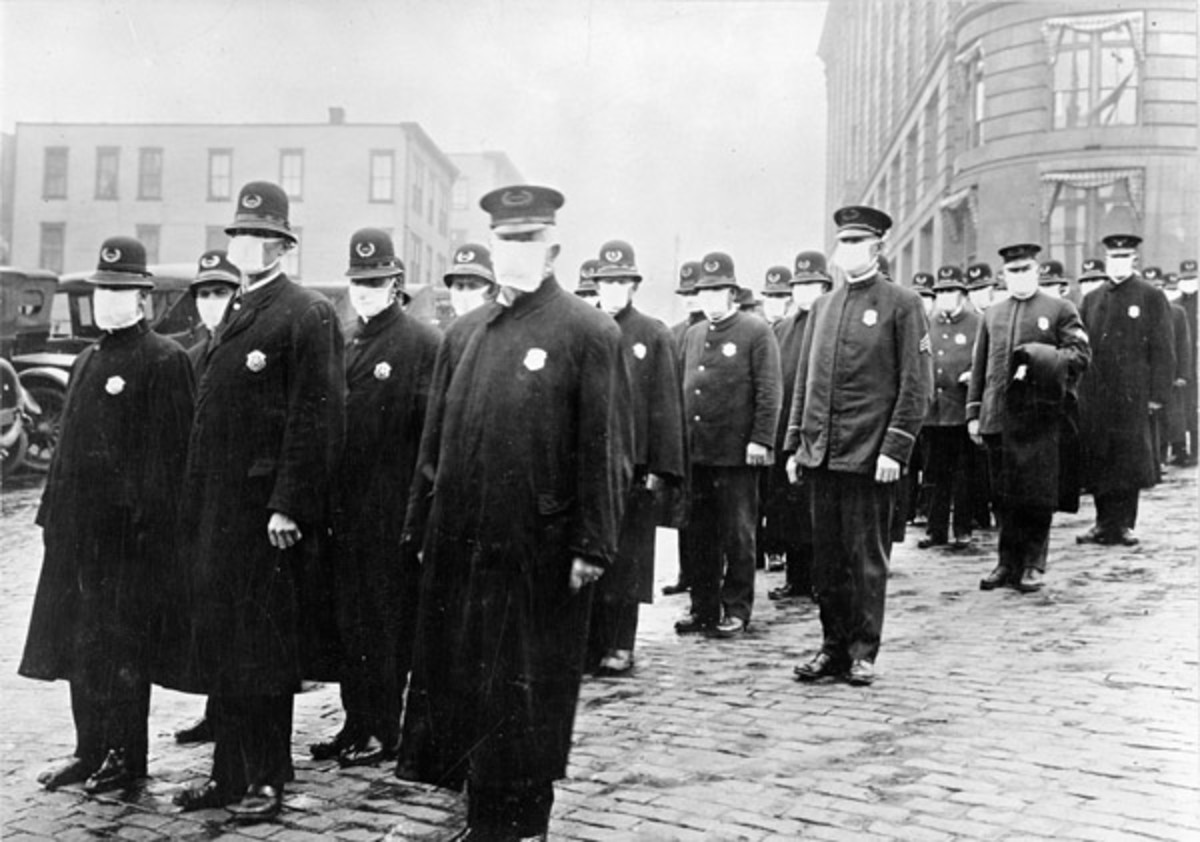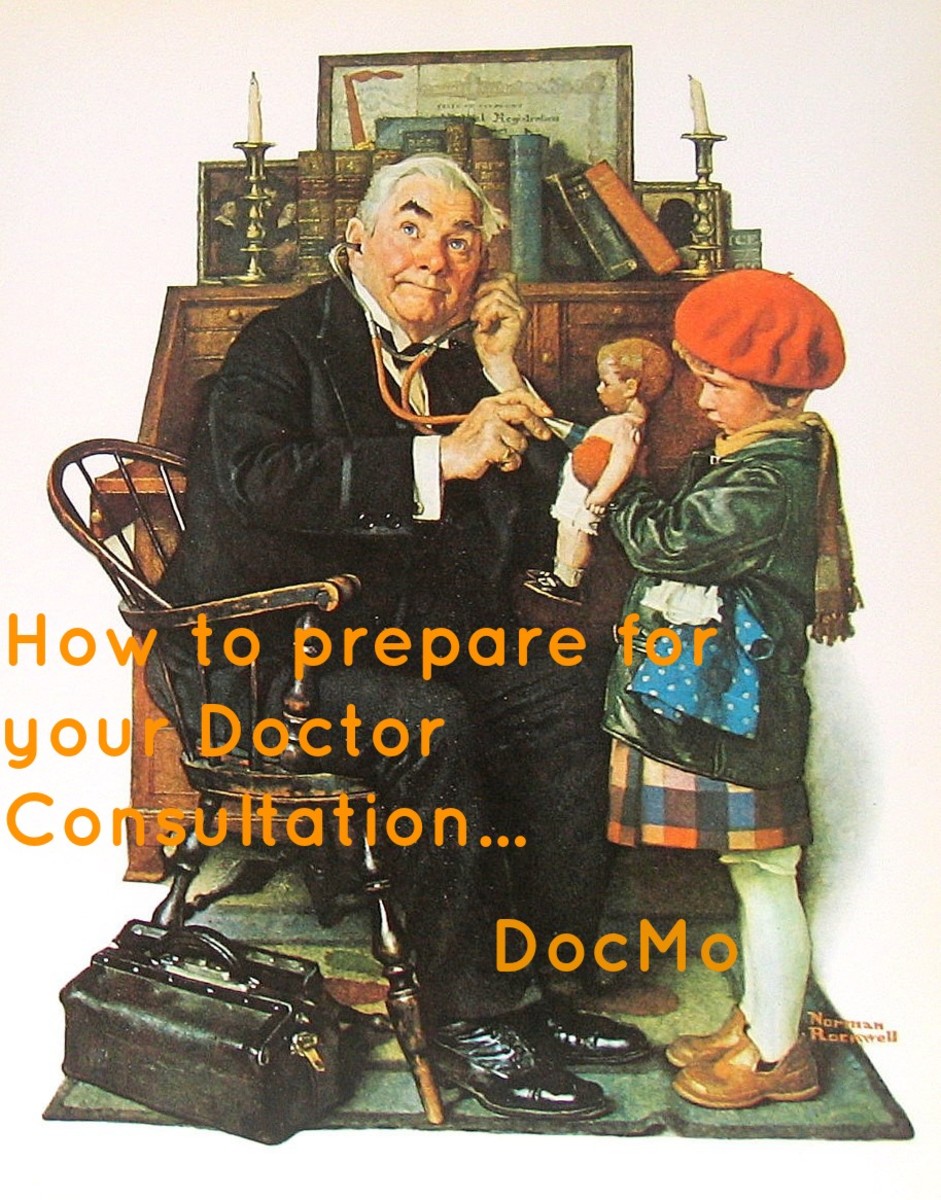A New Flu Killer: A Revamped Cousin of 2009's Flu Pandemic

An Old Enemy Reinvented: The H3N2 variant
According to the Centers for Disease Control and Prevention (CDC), there is yet another swine-related influenza virus affecting the United States and it has hospitalized 5% of its victims, hospitalized 16 people, and has claimed one death since July of 2012. This virus is called H3N2v (v for variant) and it is the newest evolved virus from the 2009 H1N1 (Swine Flu) Pandemic virus from just a few short years ago. It was first recognized in 2011 and has been a slowly growing outbreak that has affected 297 people so far this year. The CDC is very concerned about the containment of this virus and continues to update new outbreaks on a weekly basis and the link to these updates is provided below.
The H3N2v virus is mainly spread from pigs to humans although there have been limited cases of human-to-human spread, they are not enough to sustain a community spread of the virus. The CDC has recommended that anyone at high risk of flu complications to avoid pigs and swine barns at the fair this year or to avoid going to the fair altogether if at extremely high risk. People included in this high-risk group include children under 5 years, people 65 years and older, pregnant women, and people with chronic conditions (such as diabetes, asthma, heart disease, cancer, chemotherapy patients, HIV, neurological conditions, and other immunosuppressed conditions).
Now, what you've all been waiting for... Does the 2012 seasonal flu vaccine cover this new virus? The answer is no. The seasonal flu vaccine provides coverage for Type A influenza H3N2 virus as well as two other viruses listed further in this article, but not the swine H3N2-variant. The CDC is closely monitoring this virus with regular communication with each state and increasing laboratory testing to ensure that the virus is not a risk of becoming a pandemic.
How Do I Know Which Flu I Have? The Symptoms are All the Same
Mild Cases of Flu (Last 3-5 Days)
| Moderate-Severe Cases of Flu (in addition to mild signs & symptoms)
| Flu Complications
|
|---|---|---|
Muscle Aches
| High fever
| Pneumonia
|
Runny Nose
| Vomiting
| Bronchitis
|
Fever
| Diarrhea
| Sinus infection
|
Sore throat
| Ear infection
| |
Cough
| Exacerbate asthma attacks in Asthmatics
| |
Headache
| Exacerbate heart failure in CHF (congestive heart failure) patients
| |
Fatigue (feeling tired)
|
Weekly Updates on H3N2v Virus Outbreak
2012 Outbreaks of H3N2v as of 9/08/2012

I'm a Healthcare Provider, What Should I Do if I Encounter a Possible Swine-related Flu?
- CDC - Seasonal Influenza (Flu) - Interim Information for Clinicians about Human Infections with H3N2
CDC Centers for Disease Control and Prevention Influenza Flu - Interim Information for Clinicians about Human Infections with H3N2v Virus.

Who Creates the Seasonal Flu Vaccine & What am I Protected Against?
Every year, organizations such as the CDC (Centers for Disease Control & Prevention), WHO (World Health Organization), and FDA (Food and Drug Administration) come together to share information about the previous year's most prevalent flu viruses and devise a brand new formula of influenza vaccine that provides for the best protection of their citizens. This year the flu vaccine being offered will contain the following three vaccine viruses.
- A/California/7/2009 (H1N1)pdm09-like virus (In layman terms it means: Type A influenza, strain first located in California in 2009, strain identification #7, H1N1 are the antigenic characterization of the viral proteins. The same follows for the following viruses below.
- A/Victoria/361/2011 (H3N2)-like virus
- B/Wisconsin/1/2010-like virus
There will be four types of vaccines available: A live attenuated nasal spray (FluMist) and three inactivated injection-type vaccines. These injection vaccines are the typical intramuscular vaccine, an intradermal vaccine (Fluzone Intradermal) and a high-dose vaccine (Fluzone High-Dose) for people age 65 years and older. The CDC does not currently recommend one vaccine over the other and the effectiveness of the high-dose vaccine is currently under research that will be available in the years 2014-2015.

Why Should I Get the Vaccine? I Heard You Can Get the Flu from the Vaccine Itself.
According to the CDC, annual flu deaths range from 3,000 to 49,000 people and over 100,000 people in the United States are hospitalized due to flu complications. This year's flu vaccine has been created to protect against the majority of influenza viruses that will affect the majority of the population. However, it is possible to still get the flu despite being vaccinated with the seasonal flu vaccine. An advantage of being vaccinated with the seasonal flu vaccine is that it may provide cross-protection to similar influenza viruses, even if they are not an exact match. The CDC states that one cannot contract the flu from the vaccine because it contains inactivated viruses although side effects may occur which are listed in the table below.
Possible Side Effects of the Flu Vaccine
Mild side effects of the shot
| Mild side effects of the nasal spray
| Severe side effects that require Immediate Medical Attention
|
|---|---|---|
Soreness, redness & swelling at the injection site
| Runny nose
| Difficulty breathing
|
Headaches
| Headaches
| Hoarseness
|
Fever
| Fever
| Hives
|
Nausea
| Nausea/vomiting
| Swelling of the face, eyes, lips, and/or tongue
|
Fainting, typically in adolescents
| Muscle aches
| Racing heart/heart palpitations
|
Wheezing
| Dizziness
| |
Behavior changes
| ||
Fever > 102
|
Who are at an increased risk of contracting the Flu?
Chronic disease patients
| Other Immunosuppressed Individuals
| Others at Increased Risk
|
|---|---|---|
Asthma
| Pregnant or expecting to be pregnant during the flu season
| Those living with people who have high-risk medical conditions
|
Emphysema
| Ages 6 months - 18 years receiving long-term aspirin therapy
| Those living with children < 5 years of age
|
Heart disorders
| Nursing home and chronic-care facility patients
| Those living with adults aged 50 or older
|
Kidney disease
| Morbidly obese (BMI >39)
| Healthcare personnel
|
Liver disease
| Aged 6 months - 4 years
| American Indians/Alaskan Natives
|
Neurological disease
| Aged 50 years and older
| |
Blood disorders (Sickle Cell disease)
| Patients on chronic steroid treatment
| |
Diabetes
| ||
Other metabolic disorders
| ||
HIV
|
Who Should Not Receive the Flu Vaccine? The Flu Shot versus Nasal Spray
The following people below should not receive the flu shot
| The following people below should not receive the nasal spray vaccine
|
|---|---|
Severe allergic reaction to eggs (mild reaction to eggs-such as hives- may receive the shot with additional precautions)
| Children < 23 months of age
|
History of severe allergic reaction to previous flu vaccine
| Adults 50 years of age or older
|
History of Guillain-Barre Syndrome after receiving a flu vaccine
| Severe allergic reaction to eggs
|
People currently ill, have a fever, respiratory illness, or mild illness should wait until they're well until receiving vaccine.
| Severe reaction to previous flu vaccine
|
Asthma patients
| |
Children < 5 years old with one or more episodes of wheezing within the past year
| |
Pregnant women
| |
People with seizure disorders, nerve disorders, or weakened immune systems (diabetes, cancer, chemotherapy, HIV patients)
| |
Anyone is close contact with immunocompromised individuals. Examples are those who work in bone marrow transplant units
| |
Children or adolescents on long-term aspirin treatment
| |
History of Guillain-Barre syndrome after receiving the flu vaccine
| |
Anyone moderately or severely ill should wait until they fully recover before receiving a vaccine
|
Don't know your BMI? You could be at increased risk of the Flu.
Prevention & Staying Healthy
Hopefully this article has helped my readers become a little more educated on the very real risk of seasonal influenza, the importance of vaccination and influenza awareness. Being opposed to vaccination is a personal choice and a little common sense will also help prevent you from becoming ill this season.
- Wash your hands & wash them often. This is probably the simplest and most important act that can prevent you from becoming ill.
- If you or a friend is sick with a flu-like illness, the CDC recommends staying home for at least 24 hours after your fever is gone (without the use of medicine) to prevent spreading the virus to others.
- People who care for children younger than six months have the ability to be flu-carriers and should be vaccinated to help protect the ones they care for.
Has the Flu Reached You? Interactive Map & Vaccine Finder
Have you received the 2012 Flu Vaccine?
Disclaimer
This information is for educational purposes only. It is not intended to be used for diagnostic purposes or medical advice. Always consult your healthcare provider for any concerns or questions.










